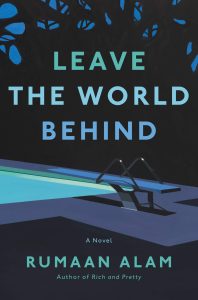
Miriam Toews has always blurred the line between fiction and truth, but in A Truce That Is Not Peace, she finally lays her own life bare in a memoir that feels both intimate and elusive. It is a meditation on why we write, how we survive, and what it means to live with the ghosts that never leave us.
The book begins with a simple prompt: Toews is invited to contribute an essay to a literary conference in Mexico City on the topic “Why do you write?” What unfolds is not an answer, but a reckoning. Her responses, offered in fragments and recollections, never satisfy the event organizers and that is precisely the point. Writing, for Toews, is not a matter of explanation but endurance.
Structured as a series of dated reflections, the memoir defies linearity. It flows like memory itself, circling back, doubling over, and surfacing moments of piercing grief and unexpected humor. Readers familiar with her novels will recognize the tonal duality she commands so well: the ability to weave laughter through pain without diminishing either.
At its emotional core lies Toews’ lifelong confrontation with suicide. Her father and sister both took their own lives, and through writing, she has carried on an unending dialogue with their absence. One reviewer insightfully noted that Toews writes “to stay alive” and it is hard to imagine a truer statement. The act of writing, which began as letters to her sister decades ago, became a lifeline, a form of bailing water from a sinking boat while still insisting on rowing home.
Toews’ prose, as always, is striking in its simplicity and humanity. She can describe a leaking rowboat on a family picnic and make it a metaphor for survival. She can reference a Christian Wiman poem and transform its abstract beauty into emotional clarity. The title itself, drawn from Wiman’s work, encapsulates her worldview: that life after loss is neither war nor peace, but a fragile truce we learn to live within.
Readers looking for a traditional memoir may find the structure disorienting at first. Like consciousness itself, it loops through time and skips across generations parents, children, grandchildren all rendered with affection and wit. Toews never sentimentalizes her past, nor does she wallow in tragedy. Instead, she transforms sorrow into motion, grief into energy, silence into art.
A Truce That Is Not Peace is both an act of remembrance and resistance. It refuses closure, offering instead a deeply humane acceptance of the contradictions that make us who we are. Toews proves once again that writing can be an act of defiance a way of staying afloat even when the boat is sinking.
If you’ve ever read Women Talking or All My Puny Sorrows, this book feels like the thread that connects them all. It is Miriam Toews at her most raw, her most inventive, and her most alive.
👉 Purchase A Truce That Is Not Peace on Amazon: https://amzn.to/4q56uOf


